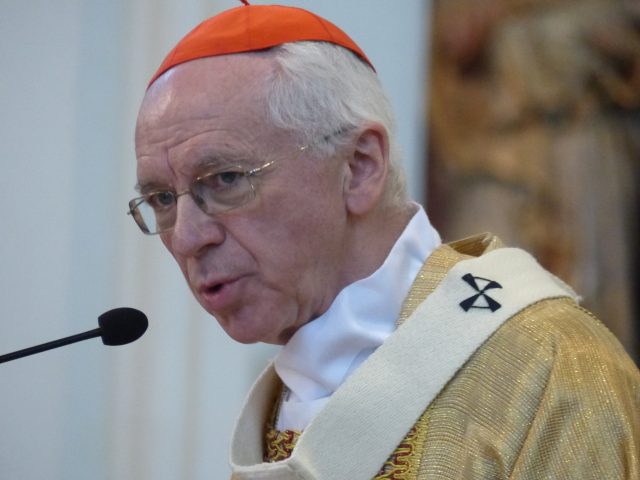The ‘New Evangelization’—Discarded? by Phil Lawler

Fr. Roger Landry: Louis and Zélie — St. Thérèse’s Incomparable Parents and Church Builders
July 10, 2019
Archbishop Charles J. Chaput: Building A Culture of Religious Freedom
July 10, 2019
Cardinal Jozef De Kesel, Archbishop of Mechelen-Brussels and Primate of Belgium
By Phil Lawler, Catholic Culture, July 09, 2019
 Yesterday’s CWN headlines included a remarkable interview with Cardinal Jozef De Kesel of Brussels, in which the cardinal welcomed the arrival of secularism in Europe. Read the whole interview (if you have the stomach for it), and see if you can detect therein any statement, any argument, any suggestion that could not have been endorsed by an atheist or a pagan. I can’t.
Yesterday’s CWN headlines included a remarkable interview with Cardinal Jozef De Kesel of Brussels, in which the cardinal welcomed the arrival of secularism in Europe. Read the whole interview (if you have the stomach for it), and see if you can detect therein any statement, any argument, any suggestion that could not have been endorsed by an atheist or a pagan. I can’t.
Just for example, take this remark:
Perhaps the biggest challenge for the Church in Europe, and it’s also an opportunity, because it helps us to rediscover our roots and our mission, is to wholeheartedly accept secularized society.
Wouldn’t Voltaire have been delighted with a Church that pursued such a goal? He wouldn’t have had anything to ecrasez!
And speaking of Voltaire, take a careful look at the Belgian cardinal’s thumbnail history of modern Europe:
After antiquity, a Christian culture was established in Europe. From the 17th century and during the Enlightenment, particularly during the French Revolution, little by little the Church found that Europe was no longer an entirely Christian society.




